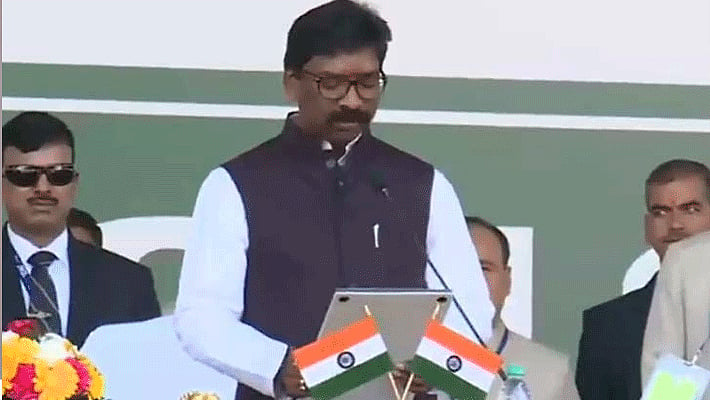Jharkhand unit of BJP on Friday welcomed the decision of Governor, Ramesh Bais to return the controversial Jharkhand (prevention) of mob violence and mob lynching Bill to the state government for reconsideration.
The Bill was passed by the state assembly on December 21 during the winter season after BJP members had walked out of the House.
Dipak Prakash, president of Jharkhand BJP today said Raj Bhawan returned the bill after seeking legal opinion and provisions in the Bill were aimed to appease a particular community. Dipak said mind was not applied while drafting the Bill which could have disrupted social harmony.
A delegation of the BJP had submitted a memorandum to the Governor objecting to the contents of the Bill.
Chandreshwar Prasad Singh, former Speaker and BJP MLA from Ranchi thanked the Governor for rejecting the Bill which was passed in a " hurry".
Ramesh Bais, Governor of Jharkhand is a former MP from Raipur in Chhattisgarh and was a minister in the Atal Bihari Vajpayee government.
Another delegation of the Jan Jatiya Suraksha Samiti had met Governor on February 11 and suggested the bill should not be approved by him.
The ruling Jharkhand Mukti Morcha in its election manifesto had promised legislation to curb mob lynching following incidents of killing of Tabrez Ansari at Saraikela in 2019 and two others at Ramgarh.
According to the provisions of the Bill, two or three people were recognised as a mob. Raj Bhawan found this section 2(6) against the law and said mob, as defined in the law, should be redefined.
The Bill provided life imprisonment and a fine of Rs 25 lakhs for offences where death was caused by the mob, life imprisonment for those conspiring for mob violence, ten years jail term
for causing grievous hurt by the mob, three years jail term for those abetting mob lynching, three years jail for those creating an atmosphere of mob violence and one year jail for those found destroying evidence.
Any act or series of acts of violence or death, whether spontaneous or planned by a mob on the ground of religion, race, caste, sex, place of birth, language or political affiliations have been recognised as mob violence in the Bill.
Offences registered were non-bailable and compoundable.
Raj Bhawan found defects in the Hindi and English versions of the Bill and detected some sections were contradictory in the two versions.








